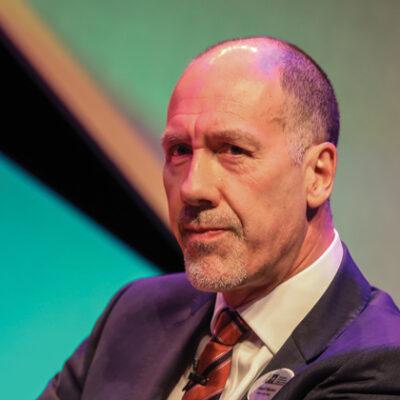Sector leaders are urging political parties to pledge to eradicate spiralling SEND deficits, set a school leader working-hours cap and create an independent curriculum body ahead of the next election.
The proposals form part of school leaders’ union ASCL’s 2024 election manifesto, which sets out its blueprint to fix England’s “crumbling” education system.

General secretary Geoff Barton argued the policies will help to “give children and young people a more equal chance of thriving”.
“But pupils will only do so if there are also enough teachers. Any incoming government must address the worsening recruitment and retention crisis as a matter of urgency.
“Teachers are the foundation upon which the education system is built and that foundation is currently crumbling.”
The document, which was published today, includes a number of issues the union has campaigned on previously, including an uplift to teacher wages that “at least keeps pace with inflation”.
Here are the most interesting proposals…
1. Take steps to protect leaders “from excessive working hours by agreeing national standards around maximum working hours and guaranteed minimum leave periods”.
2. Broaden the scope of the school teachers’ pay and conditions document (STPCD) to include school business managers and “common roles” in MATs such as chief executives. Trusts should be “required” to use the document as a benchmark when setting their pay.
3. Address the inadequacy of SEND funding, “investing in a way that eradicates historic debt and supports the system to thrive”. Schools Week revealed last year how the financial blackhole at the heart of the SEND system had ballooned to £1.3 billion, an increase of more than £450 million in just 12 months.
4. Replace the notional SEND budget with an agile funding model that “responds rapidly to meet the current and sometimes fluctuating needs of pupils”. The government currently recommends schools use the cash to pay for up to £6,000 of special educational provision to meet a child’s needs.
5. Introduce a “tailored student loan repayment arrangement”. This would see those specialising in subjects hit hardest by the recruitment crisis having their loans written off completely. There would then be a “sliding scale of repayment rates depending on subject, phase, sector, whether the teacher is in a hard-to-recruit area, and how long they stay in the profession”. A previous study into a student loan reimbursement trial found its influence on teachers’ career choices was “subtle”, and that its impact was “limited” for staff who had concerns over workload and their work-life balance.
6. Ditch performance tables and instead create an “accountability dashboard” or “balanced scorecard” to reflect the “outcomes parents and young people care about”.
7. Review the mechanisms compelling schools to join an academy trust in a “blunt way”. One of the policies the union believes should be looked at is the government’s “coasting” powers, which were introduced in September. The intervention powers allow regional directors to force schools and academies into new trusts if they receive back-to-back Ofsted grades below ‘good’.
8. A universal “passport” qualification in literacy and numeracy should be launched. ASCL argued this would “enable school leavers to demonstrate their competence in these crucial subjects and eliminate the need for the endless cycle of GSCE English and maths resits”. Exam board AQA is already exploring a similar idea.
9. An independent body tasked with shaping the curriculum and assessments. The body would consider the “learning we need to prioritise in our schools” and what “long-term changes may be needed to the curriculum”.
The union explained that it would be similar to the independent School Teachers’ Review Body – which makes recommendations on teacher pay each year – and advise the prime minister and secretary of state. A major study by Lord David Blunkett, to inform Labour party policies, called for something similar.
10. Undertake a review of recent changes to the initial teacher training market, “which have led to the closure of a number of providers and left many potential teachers unable to access training in their local area”.
11. Urgently rebuild capacity in child and adolescent mental health services (CAMHS). ASCL said the same steps need to be taken in children’s social care, police support services and careers advice and guidance services. The manifesto noted schools and colleges have become the “fourth emergency service” or “last civic institution standing”.
















Your thoughts